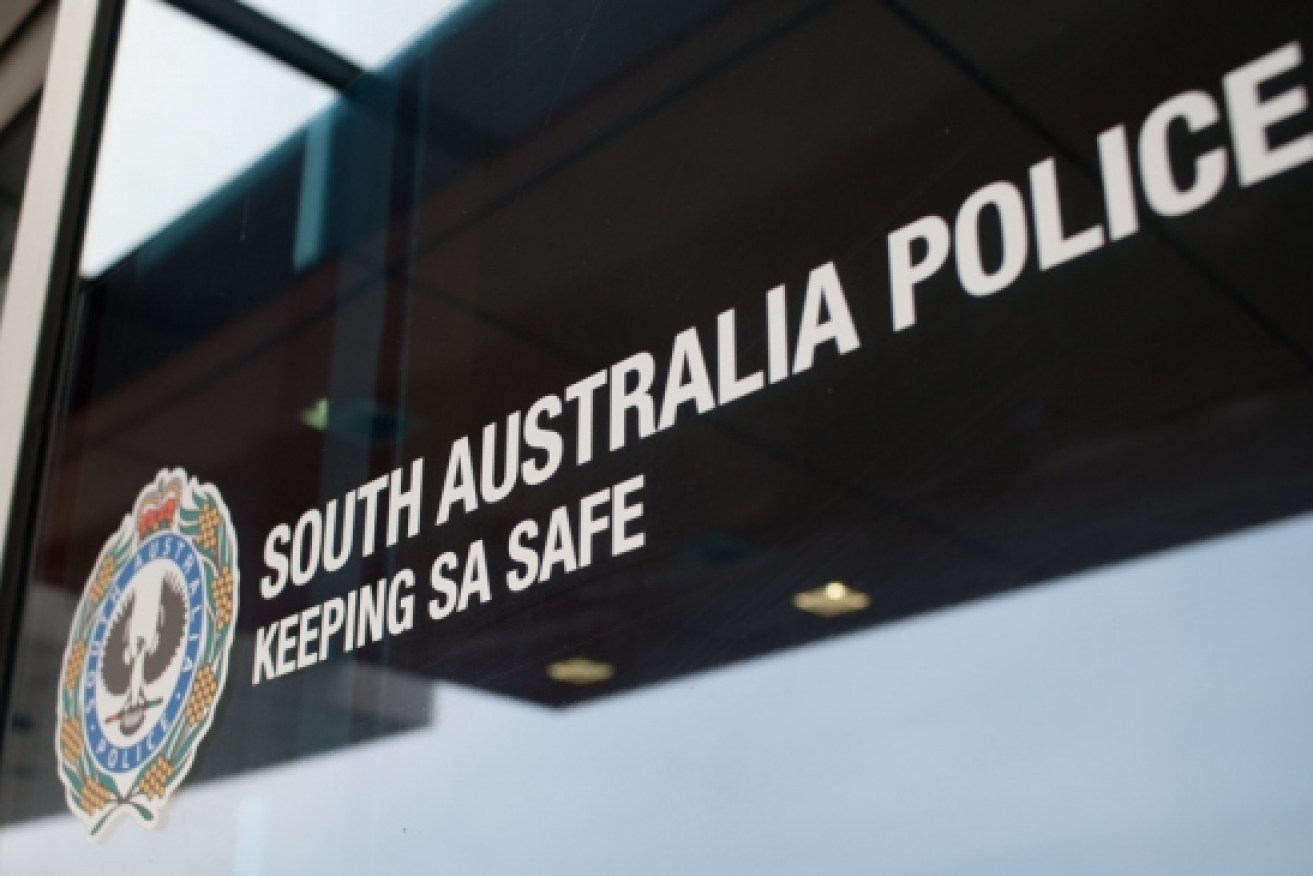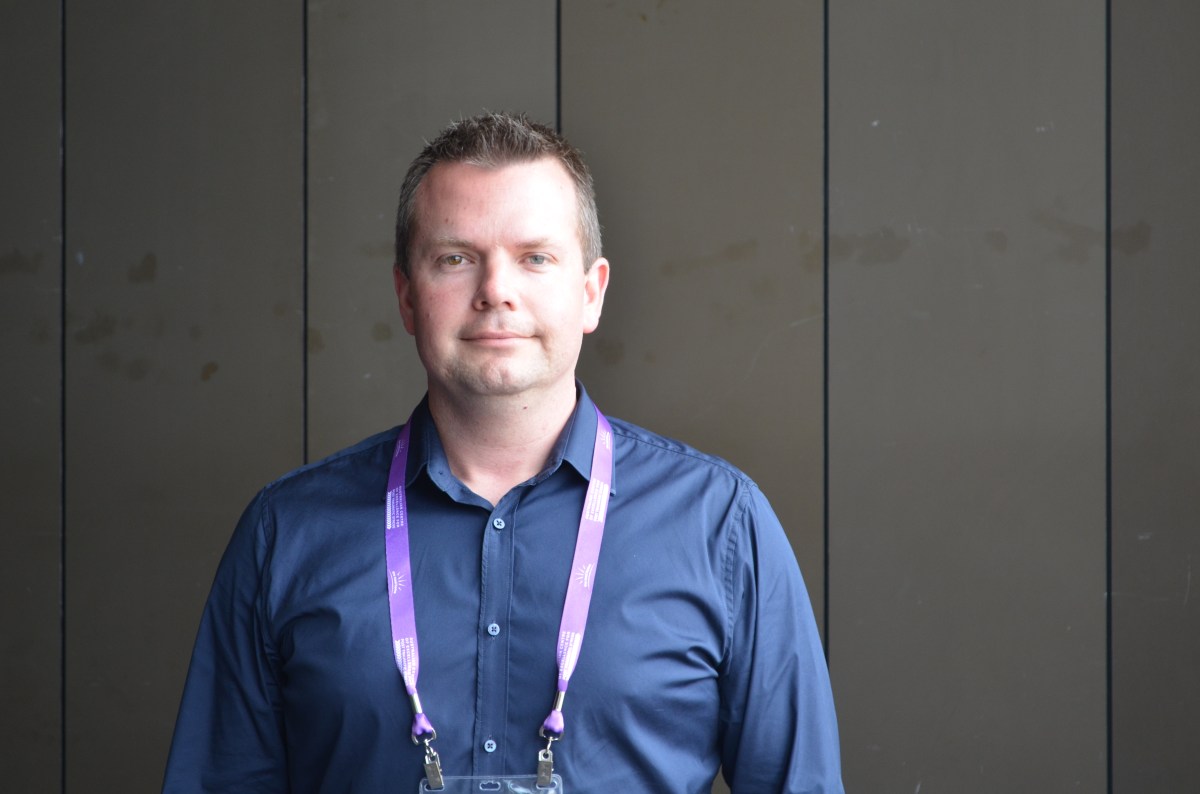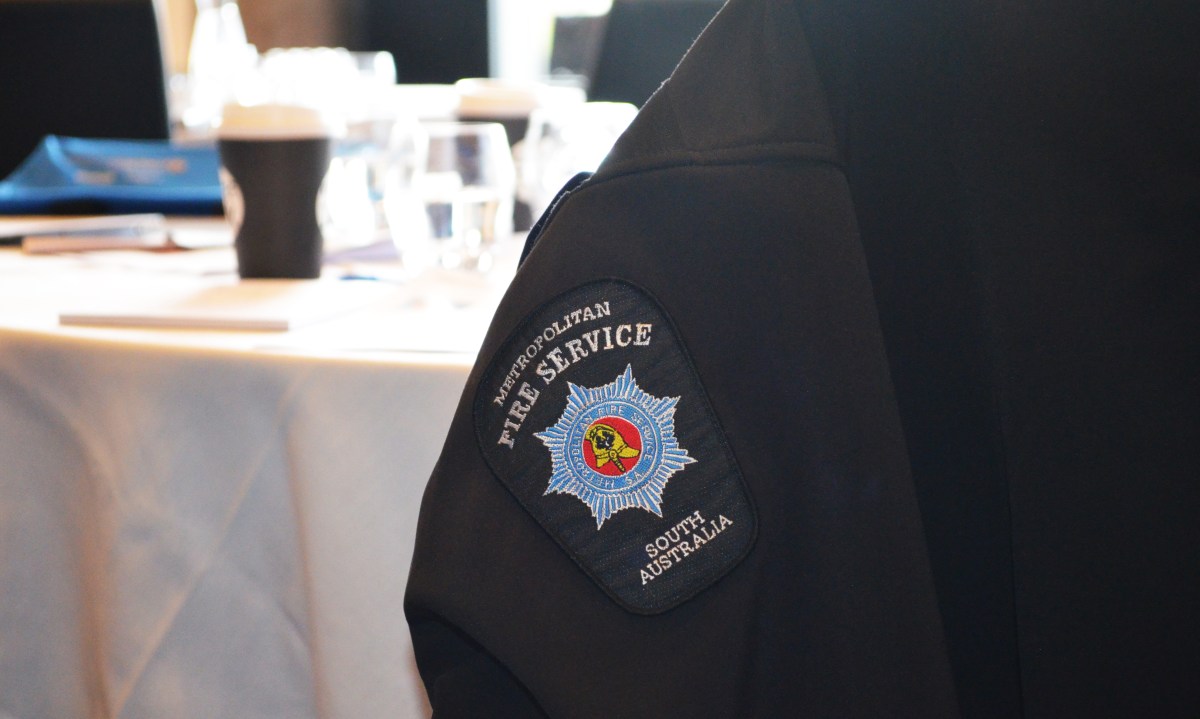Frontline police call for backup to tackle the threat within
Matthew Newlands was getting three hours sleep and drinking a bottle of red wine a night to cope with the stress of being a frontline police officer, when he made the career-ending decision which led him to confront his demons.


After being arrested for stealing a baseball bat from a woman after responding to a callout, the 10-year veteran lost his job – but was then able to face the Post Traumatic Stress Disorder he said developed from the harsh and often ugly realities of his chosen career.
Newlands had wanted to be a police officer since he was four years old.
He enrolled in the South Australia Police academy at 20 and “never missed a day”.
“I was living my ideal life… and was the sole recipient of the leadership award at the academy as well,” he said.
It was while working at Port Augusta, not long after he graduated in 2007, when Newlands encountered his first traumatic event.
“It was the death of a four-month-old baby,” he told InDaily.
“It was perceived to be a SIDS death of otherwise natural circumstances, but having to remove a deceased child from a mother’s arms is not exactly a pleasant experience.
“Support came in the form of a phone call from our welfare section that was just like a check-in: ‘Do want to talk about anything?’”
Newlands recently spoke at the Global Alliance Conference on Post-Traumatic Stress conference in Adelaide about how he developed PTSD as a police officer, committed a crime in 2015, and was subsequently fired from SA Police in 2016.
PTSD is a mental health condition triggered by a traumatic event or cumulative exposure traumatic incidents, and is symptomatically manifested through flashbacks, insomnia, hypervigilance and sometimes suicide.
SA Police wouldn’t reveal to InDaily the exact figures of how many officers suffer from PTSD , citing confidentiality, but said 26 per cent of its workers compensation claims in 2017/18 were due to “psychological injuries”.
It said it employed professional psychological, medical chaplaincy and social work support, with the aim of “maximising the safety and wellbeing of the employees”.
It also offered an Employee Assistance Program – an external professional counselling service for work-related and personal problems. This program offers six confidential sessions over a two-year period, available to all employees and immediate family members.
Newlands, three years out of the force, now offers peer-to-peer support and mentoring for first responders.

Matthew Newlands. Photo: Angela Skujins
“I don’t like the term broken,” he says. “I was unwell.”
Newland said he first began to develop the symptoms of PTSD after four years of service.
“I would wake up often with quite a severe fear response, and I wouldn’t necessarily always remember what the dream was,” he said.
He attributes his PTSD to “the accumulative stress, I guess, that constant, ongoing trauma that just comes with the territory of being a place, a first responder”.
“Safety was always a challenge.
“It was everything from I guess having to drive fast through traffic, to navigating violent or hostile people, to being in situations where our lives are threatened either through words or through weapons.”
In 2011, Newlands said he sought four internal therapy sessions through SA Police’s employee assistance program after the birth of his daughter.
He suffered from flashbacks about his experience with the deceased baby, and nightmares.
“I went and saw someone and just said ‘obviously I’m not getting much sleep’ and that sort of stuff, and I just thought I’d talk to someone because I’ve got this new challenge and my wife was struggling and I was struggling,” he said.
“I said to them ‘I know I need to get more sleep and make sure I’m eating right, and probably a bit more exercise.’
“It was kind of after the fourth session, it was pretty much like, ‘well, you know what you need to do so like, go off and do that.’”
Newlands said he felt the therapy was ineffective. He asked himself at the time: “If all I get is ‘you know what you need to do’ and ‘good luck’ then I thought what’s the point: why bother go back?”
When InDaily asked SA Police about counselling and therapy service offered to Newland, they replied: “The external service provided is totally confidential and it would be inappropriate to discuss individual cases.”
Newlands said his trauma was compounded two years later, in 2013, when a colleague took his life.
He said the Employee Assistance Section sent a therapist “fresh out of university” to console officers. Newlands said no-one spoke individually to the therapist, and he personally coped with the trauma by working overtime, withdrawing from his family and drinking heavily.
In January 2015, Newlands was diagnosed by an external psychologist with “severe to extreme symptoms of post-traumatic stress and depression”, with symptoms that included suicidal thoughts.
“I initially refused the diagnosis: I thought post-traumatic stress was for soldiers, and I’m not in a war.” he said.
“So I didn’t feel like I could own that in any way, and I didn’t feel depressed – I felt nothing.”
In the same month, Newlands was promoted to Senior Constable with the State Tactical Response Group in Thebarton.
But his decade-long career came to an end in August 2015, when the SA Police anti-corruption branch arrested him for theft.
The Acting Commissioner stated that whilst I had an exemplary record, certainly in the service of the police, they couldn’t look past the act. She stated she didn’t know why I felt I couldn’t put my hand up to cope
It was reported in October that year that he stole a baseball bat after attending an incident in Craigmore.
He told InDaily he was called to a scene late at night, where a woman was in possession of the bat.
Newlands said he took the bat from her and intended returning it later, but she couldn’t be located.
Instead of lodging the item into the police property system as evidence, Newlands said he dubbed it the “team bat”.
He says he struggled to rationalise his decision to keep the bat at the station, where it was incorporated into “team banter”.
Newlands doesn’t blame PTSD for his offence but said, in retrospect, it offered a framework to understand his out-of-character actions.
“Not at any point do I say my mental health was an excuse for my behaviour; I have to accept full accountability of the decisions I made,” he said.
“But what it does do is offers me an explanation as to why I would behave like that in that situation.
“In January of 2016, I indicated to my lawyer that I wanted to plead guilty, that I was going to stop trying to hide from my actions.”
InDaily asked SA Police if Newland’s career-ending theft could be attributed to mental health issues. It said it would be inappropriate to speculate on matters which have been dealt with by a court.
Newlands said at the time of the theft he was drinking a bottle of red wine a day, and getting about three hours broken sleep.
I will not be the last person – there are ticking time-bombs out there
He said he had left his family months earlier with the intention to end his life, and the night he was arrested he contemplated it again.
On May 19, 2016, the Magistrates Court found Newlands guilty of aggravated theft.
SA Police had dismissed him from the force nine days before the verdict.
When InDaily asked SA Police why the decision was made, it responded that Newland was “fully aware of the circumstances and the reasons for his dismissal”.
Newlands said he was ashamed about his behaviour, but angry at SA Police for not providing adequate mental health support during or after his service.
“The Acting Commissioner stated that whilst I had an exemplary record, certainly in the service of the police, they couldn’t look past the act. She stated she didn’t know why I felt I couldn’t put my hand up to cope,” he said.
“That angered me a lot because it wasn’t a question but it was a statement.
“It was almost as if there were this level of ‘we believe we’re doing everything right, and we’re doing enough so this is your responsibility and this is on you for not coming to us earlier and saying you’re struggling.’
“[But] I told them I will not be the last person – there are ticking time-bombs out there.
“It’s terrifying out there on the frontline, and it seems that from my perception those at the top have this weirdly obstructed view of what’s happening.”
Metropolitan Fire Service Chief Officer Michael Morgan – who in 2018 launched a landmark study into the mental health of firefighters in conjunction with the University of Adelaide – said at the conference firefighter exposure to less fire-related incidents was “increasing”.
“Our roles have changed,” said Morgan.
“When I joined (MFS) we fought fires; we did a little bit of rescue, but we see road crash rescue and other rescues now. They’re going up, and fires are going down.”
“When it (the study) was first introduced… there was some fear.”
“We were fearful where that study would put us as a workforce.
“[But] the great part of doing the study is that it’s given us the platform to now move forward and look at ways of improving conditions and training awareness for our staff.”

Police Association of South Australia president Mark Carroll told InDaily that first responders and police officers were twice as likely to suffer from suicidal thoughts as civilians.
The state union offers individual and group counselling and the Police Federation of Australia has implemented programs to improve mental health literacy.
“I do acknowledge that SAPOL and other police departments around Australia are taking steps to rise to this challenge,” said Carroll.
“The Police Association of SA has also provided direct support to its own members with support groups and seminars.
“[But] the work we’ve done in this space won’t be a miracle cure.
“Police need more access to more mental-health professionals, more dedicated facilities and more services.”
Newlands said while it was great organisations such as the MFS backed research in PTSD for first responders, he waited for a similar action from SA Police.
“Maybe there’s a fear that if they say ‘we’ve caused all this trauma, or we’ve created this environment where there’s lots of trauma exposed… it’s going to cost us a lot’,” he said.
“The nature of the job will always be traumatic; we can’t do this job without being exposed to trauma.
“But let’s actually start doing something.
“I guess in essence, just pull your head out your arse and pay attention to what’s going on. If you (SA Police) really cared, put your money where your mouth is.”
If this article has raised issues for you, you can call LifeLine on 13 11 14 – or you can call the Mental Health Triage Service / Assessment and Crisis Intervention Service on 13 14 65.




